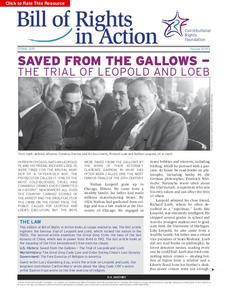K12 Reader
Remembering Abraham Lincoln
As part of their study of the contributions of Abraham Lincoln, class members design their own memorial for this great president.
K12 Reader
African American Inventors: Patricia Bath
Young readers practice their comprehension skills by responding to a series of text-based questions on a passage about Patricia Bath, the first black woman medical doctor to receive a patent.
AMCO
Clay Face Masks
Let your class explore their sculpting skills with a lesson on making clay masks. Each step in the process is fully described alongside a helpful image. Kids of any ages will be able to construct fantastic representations of the human...
Humanities Texas
Primary Source Worksheet: Lyndon B. Johnson, Excerpt from “The Great Society”
Young historians examine Lyndon Johnson's vision for a rich, powerful, and upward society as detailed in this excerpt from his famous "Great Society" speech presented at the University of Michigan in 1964.
K5 Learning
Fight for Equality: Thurgood Marshall
Students read an informational text passage on Thurgood Marshall and his contribution to African Americans' rights, and then answer questions based on what they read.
Constitutional Rights Foundation
Saved from the Gallows — the Trial of Leopold and Loeb
Was justice served for Bobby Franks? An informative article about the 1924 trial of Richard Loeb and Nathan Leopold includes an overview of the murder of Bobby Franks, the defense’s legal strategy, and excerpts of closing arguments from...
Humanities Texas
Primary Source Worksheet: Franklin D. Roosevelt, First Inaugural Address
Young historians will learn not to fear primary source materials (or fear itself, for that matter) thanks to this resource that uses Franklin D. Roosevelt's March 4, 1933 Inaugural Address to model how to conduct a close reading of such...
Historical Thinking Matters
Rosa Parks: 5 Day Lesson
What led to the success of the Montgomery Bus Boycott, and how might historians approach this question differently? This rich series of lessons includes a short introductory video clip, analysis of six primary source documents, and...
Humanities Texas
Primary Source Worksheet: Lyndon B. Johnson, Excerpt from “To Fulfill These Rights”
"Equal opportunity . . . is not enough." Johnson's 1965 commencement address to the students at Howard University provides an opportunity for participants to see how education was a key element in his vision for civil rights.
Education World
Every Day Edit - Ohio, the 17th State
In this everyday editing worksheet, students correct grammatical mistakes in a short paragraph. The errors range from capitalization, punctuation, spelling, and grammar.
Education World
Every Day Edit - Groundhog Day
In this everyday editing worksheet, students correct grammatical mistakes in a short paragraph about Groundhog Dog. The errors range from capitalization, punctuation, grammar, and spelling.
K12 Reader
Dear King George
Thomas Jefferson's letter to King George III, which evolved into the Declaration of Independence, is the subject of a two-part reading comprehension exercise that asks kids to first read the attached article, and then to respond to a...
Curated OER
Who Wrote That?
Students explore the Project Gutenberg website and conduct a webquest to answer questions about well known literature and authors.
Education World
Every-Day Edit: Thurgood Marshall
For this editing activity, learners read and edit a paragraph about Thurgood Marshall, and find the 10 errors in capitalization, punctuation, spelling and/or grammar. Learners correct each error they find.













